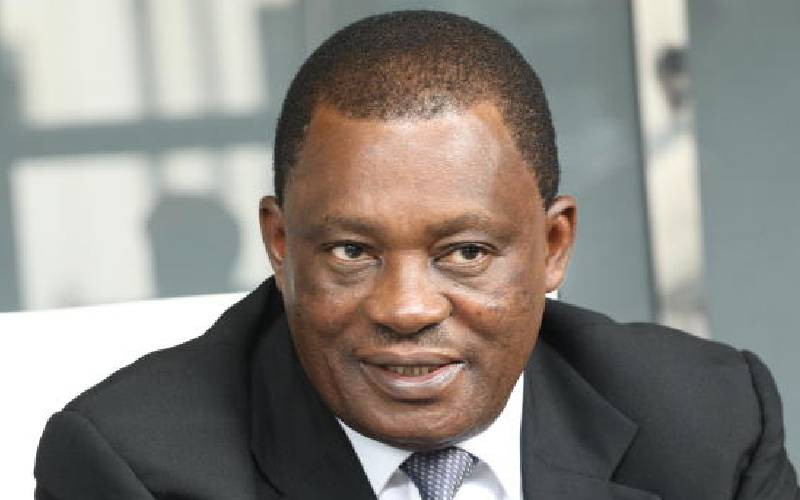
Recent amendments to the Office of the Attorney General Act, 2012 have attracted public and media scrutiny.
The Statute Law (Miscellaneous Amendments) Bill, 2023, approved by the National Assembly on March 20th 2024, awaits presidential assent to become law.
Notably, these amendments grant the AG significant human resource powers previously held by the Public Service Commission, particularly in recruitment and appointment, promotion and discipline of the Solicitor General, deputy solicitors general, state counsels and other staff within the Office of the Attorney General.
A key consideration is whether the Attorney General can maintain independence from the national Executive, akin to the Director of Public Prosecutions (DPP). Currently, the Executive, as defined by the Constitution, includes the President, Deputy President, Cabinet Secretaries and notably, the Attorney General. The President holds the constitutional authority to direct and coordinate functions of the national Executive, including the Office of the Attorney General.
Crucially, unlike the DPP, who operates independently according to Article 157(10) of the Constitution, the Attorney General, whose office is established under Article 156 of the Constitution is inherently integrated into the national Executive framework as there is no Constitutional provision that gives the Attorney General independence similar to that of the DPP. This integration precludes complete autonomy from the Executive, as the AG and CSs are individually and collectively accountable to the President for their actions and functions.
The proposed amendments seek to redistribute human resource management functions from the PSC to the Attorney General, facilitated by an advisory board. This move challenges the constitutional mandate of the Commission, which is tasked with setting norms and standards for management of human resource in the public service under Article 234 of the Constitution including among others; establishment and abolition of offices in the public service; appointment of persons to hold offices in the public service and confirmation of appointments; ensuring that the public service is efficient and effective; exercising disciplinary control in the public service; developing human resources in the public service; reviewing and making recommendations to the national government in respect of conditions of service, code of conduct and qualifications of officers in the public service and evaluating and reporting to the President and Parliament on the extent to which the values and principles referred to in Articles 10 and 232 of the Constitution are complied with in the public service.
Delinking the Office of the Attorney General from the mandate of the PSC carries significant implications for staff and operations of the office. But what are the practical implications of this separation for the AG’s office and its staff? As the Public Service Commission has been portrayed in a negative light hence compelling the Office of the Attorney General to follow the legislative route to separate the two institutions, it is important that the repercussions of such a statutory detachment be provided from the Commission’s perspective.
After delinking, all staff of the Office of the Attorney General will initially remain seconded from the PSC until the office is officially designated as a public service for pension purposes. Subsequently, the PSC will oversee transfer of service of all staff to the newly independent Office of the AG.
Following this disengagement from the Commission’s authority, state counsel, apart from those within the Office of the Attorney General, will require approval from the Commission for deployment elsewhere within the public service. Staff currently assigned to the Office of the AG will have to choose between transferring their services to the autonomous Office of the Attorney General or remaining under the Commission’s mandate.
Moreover, state counsel currently seconded to state corporations and other agencies will have to choose between returning to the Office of the Attorney General or accepting full-time positions within their current organisations, as their secondment ends upon the delinking of the Office of the Attorney General.
Additionally, the AG will lose the authority to second officers to state corporations and agencies without prior approval of the Commission, as these entities fall within the Commission’s jurisdiction.
Initially, the published Bill intended for public participation lacked an advisory board. However, close scrutiny from the Justice and Legal Affairs Committee of the National Assembly regarding the Attorney General’s capacity to manage human resource functions necessitated the addition of an Advisory Board, thus reflecting the Constitutional imperative that appointments to the public service ought to be more collaborative than unilateral.
Comparatively, the advisory board for the Office of the Director of Public Prosecutions comprises nine members, including six advocates, ensuring a broader, diverse and more cohesive expertise. In contrast, the proposed Advisory Board for the Attorney General consists of only six members, with only two advocates, namely the Attorney General and the President of the Law Society of Kenya, thereby defeating the consistent critique by the Attorney General that the Public Service Commission lacked the expertise to recruit qualified State Counsel.
Moreover, unlike the advisory board for the Office of the Director of Public Prosecutions, which advises the Office of the Director of Public Prosecutions collectively, the Attorney General would chair his own advisory board, potentially exerting influence such as the appointments in the current Gazette Notice No 3228 of 19th March, 2024 which do not exist in the staff establishment indicate.
The looming challenge is whether the amendments will stand the test of time without amending the Constitution. More crucially, will the President relinquish the authority to appoint the Solicitor General to the Attorney General? Additionally, what is to prevent such an action creating a domino effect with other Ministries, Departments and Agencies demanding their own Boards, effectively sounding a death knell to the Public Service Commission.
 The Standard Group Plc is a multi-media organization with investments in media platforms spanning newspaper print
operations, television, radio broadcasting, digital and online services. The Standard Group is recognized as a
leading multi-media house in Kenya with a key influence in matters of national and international interest.
The Standard Group Plc is a multi-media organization with investments in media platforms spanning newspaper print
operations, television, radio broadcasting, digital and online services. The Standard Group is recognized as a
leading multi-media house in Kenya with a key influence in matters of national and international interest.











